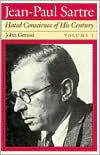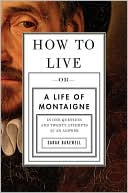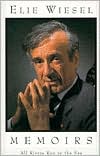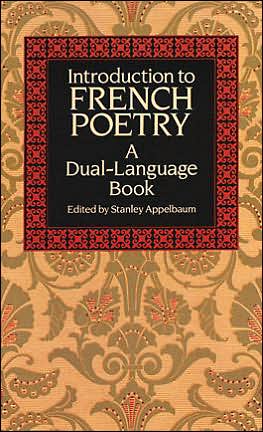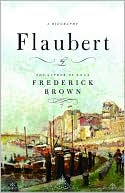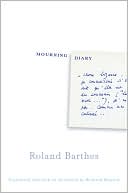Jean-Paul Sartre: Protestant or Protester?, Vol. 1
Countless biographers have tried to unveil the real Jean-Paul Sartre without his consent or cooperation. Only John Gerassi—the "non-godson" of Sartre, an atheist—was honored with the responsibility of being Sartre's official biographer. After drafting the commission with Sartre on the back of a menu at La Coupole, Gerassi recorded over one hundred hours of interviews with him between 1974 and 1979, and another hundred hours with Sartre's friends, colleagues, and enemies. Gerassi also immersed...
Search in google:
Countless biographers have tried to unveil the real Jean-Paul Sartre without his consent or cooperation. Only John Gerassi—the "non-godson" of Sartre, an atheist—was honored with the responsibility of being Sartre's official biographer. After drafting the commission with Sartre on the back of a menu at La Coupole, Gerassi recorded over one hundred hours of interviews with him between 1974 and 1979, and another hundred hours with Sartre's friends, colleagues, and enemies. Gerassi also immersed himself in Sartre's literary, philosophical, and personal writings. Gerassi had access to all of Sartre's files, unpublished manuscripts, and extensive notes for planned but undelivered lectures. Simone de Beauvoir gave many of Sartre's unpublished letters to Gerassi as well. Sartre trusted the integrity of Gerassi so completely that he considered Gerassi's biography to be the continuation of his own autobiography, Les mots. As a personal friend, Gerassi writes with advantages shared by no other biographer of Sartre. Publishers Weekly To Gerassi, political science professor at City University of New York and longtime friend of Sartre, the French philosopher remains the 20th century's ``most unrelenting conscience,'' its greatest intellectual; he charges that many critics and biographers have tried to twist Sartre back into the mainstream. Most remarkable about this brilliantly original biography, the first half of a two-volume opus, is that it is authorized: Sartre and Simone de Beauvoir cooperated with the author from the early 1970s onward. Sartre's life is shown to have been an existential drama--he lived his childhood as a ``fraud,'' fathered by a ``small, sickly Catholic technocrat'' who raised him as a girl; small and physically ugly, the mature Sartre constantly seduced attractive women. He and de Beauvoir presented themselves as the ideal liberated couple, but Gerassi finds jealousy and possessiveness on both sides. Writing with energetic immediacy, the author argues that Sartre ``had never pretended to be a resistant during the war,'' and limns a gutsy intellectual caught between Gaullists and French Communists. Photos. (June)
Acknowledgments Part One - The Setup 1. L'Enfant Terrible 2. L'Adulte Terrible Part Two - The Bastard 3. The Faker 4. The Follower 5. The Loser Part Three - The Loner 6. The Watchdog 7. The Traitor 8. The Writer 9. The Soldier 10. The Resistant Notes Bibliography Index
\ Publishers Weekly\ - Publisher's Weekly\ To Gerassi, political science professor at City University of New York and longtime friend of Sartre, the French philosopher remains the 20th century's ``most unrelenting conscience,'' its greatest intellectual; he charges that many critics and biographers have tried to twist Sartre back into the mainstream. Most remarkable about this brilliantly original biography, the first half of a two-volume opus, is that it is authorized: Sartre and Simone de Beauvoir cooperated with the author from the early 1970s onward. Sartre's life is shown to have been an existential drama--he lived his childhood as a ``fraud,'' fathered by a ``small, sickly Catholic technocrat'' who raised him as a girl; small and physically ugly, the mature Sartre constantly seduced attractive women. He and de Beauvoir presented themselves as the ideal liberated couple, but Gerassi finds jealousy and possessiveness on both sides. Writing with energetic immediacy, the author argues that Sartre ``had never pretended to be a resistant during the war,'' and limns a gutsy intellectual caught between Gaullists and French Communists. Photos. (June)\ \ \ \ \ Library JournalGerassi knew Sartre, and he has not written a detached, academic study. In the first chapter he conveys a vivid sense of the man as someone of honesty and humor who tended to judge people by the extent of their commitment to revolutionary politics. Unfortunately, the remainder of the book does not live up to the initial promise, for Gerassi retells a largely familiar story. While he has some good anecdotes, especially about Sartre as a teacher and about his relationship with Simone de Beauvoir, he glides quickly over Sartre's philosophy. He does not discuss important lectures on Hegel given in the 1930s and essential to understanding French philosophy at the time, and describes opponents of Sartre in sharply negative tones. The work's principal value lies in its portrayal of the author's own personality rather than his insights about Sartre. Not recommended.-- David Gordon, Bowling Green State Univ., Ohio\ \ \ BooknewsAn authorized, but not uncritical, biography following Sartre from his earliest years until 1945. This volume, the first of two, explores Sartre's development into a political radical through various transformations, addressing Sartre's existentialism, his literary endeavors, his relationship with de Beauvoir, and his Marxism. Using extraordinary primary materials Gerassi sheds brilliant light on both the life and the thoughts of the man who embodied one of the prime intellectual movements of the 20th c. Annotation c. Book News, Inc., Portland, OR (booknews.com)\ \
